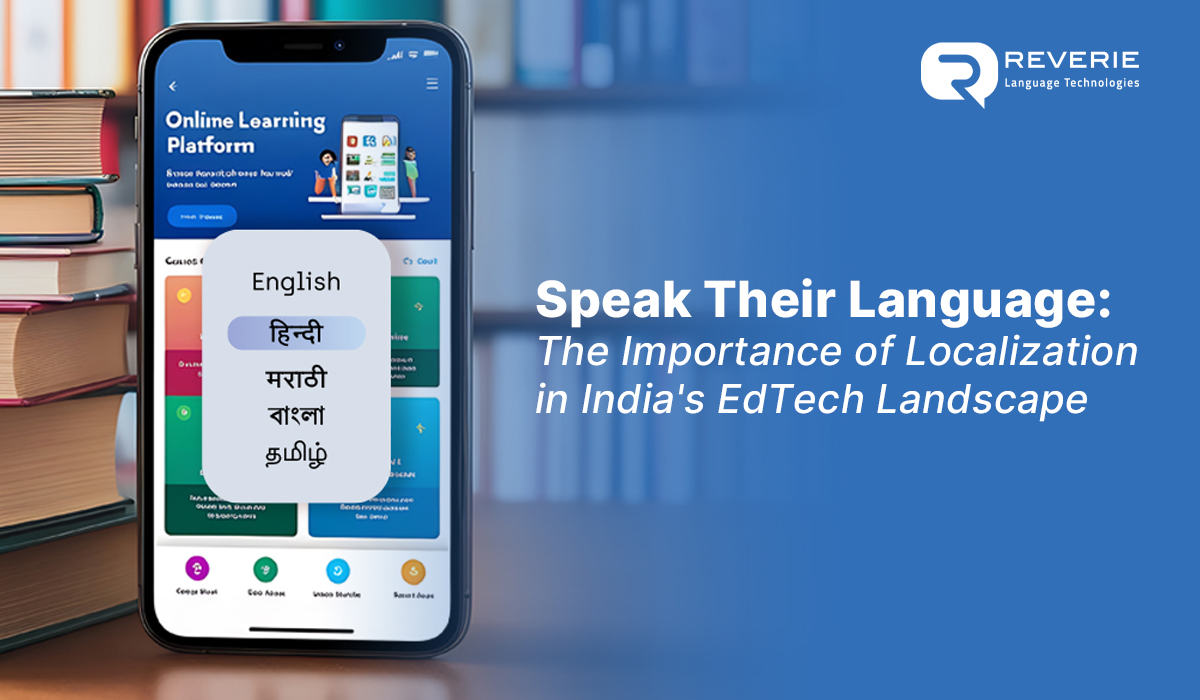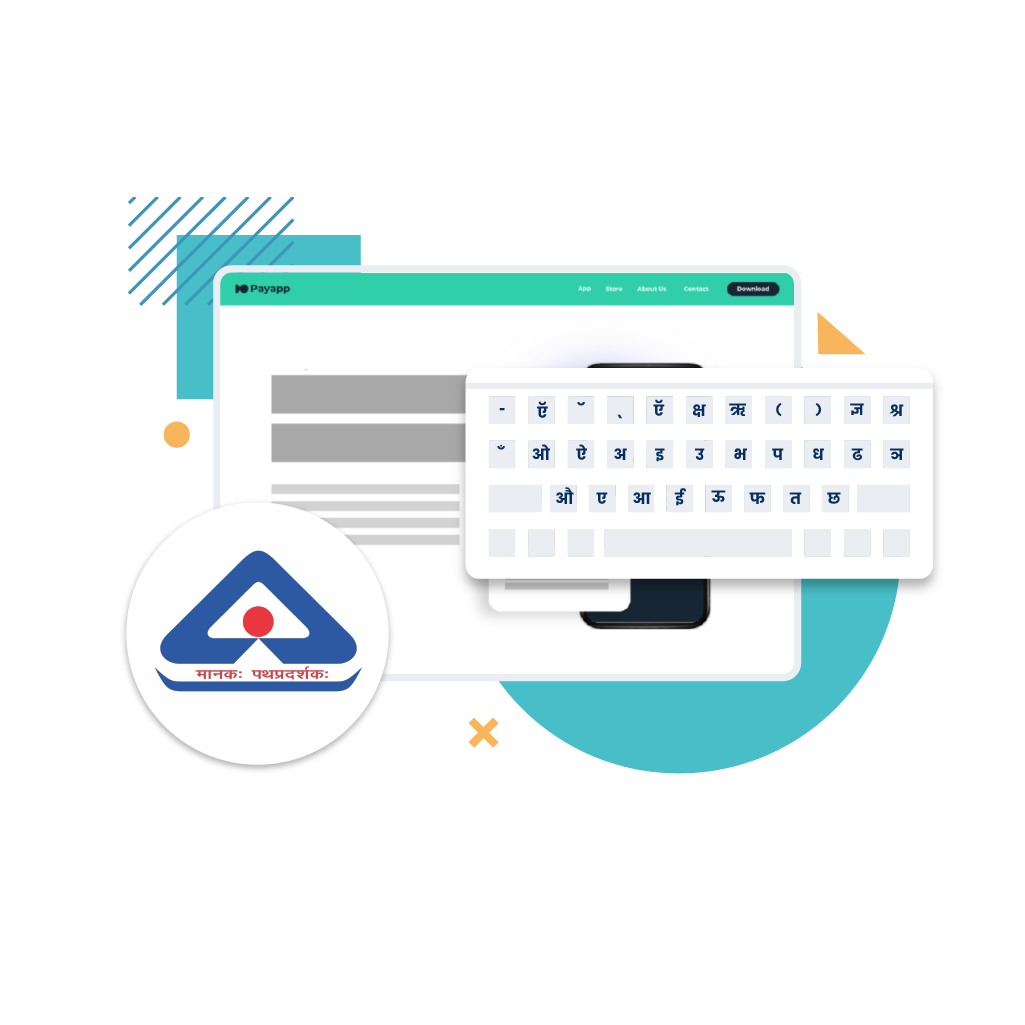The Indian EdTech landscape is on track to reach an impressive $29 billion by 2030. However, one significant challenge looms large—India’s linguistic diversity. With over 57% of internet users preferring content in Indian languages, offering educational resources solely in English may no longer suffice. This is where education localization becomes essential.
Let’s be honest—education is a personal journey. If your content doesn’t resonate with learners in their native language, how can you expect them to engage, comprehend, or retain the knowledge you’re presenting? EdTech localization involves more than just translating text; it requires adapting content to reflect linguistic and cultural nuances, making learning feel natural, intuitive, and enjoyable.
Why Localization is Crucial for EdTech Right Now
Bridging Language Barriers
Picture a student from a rural part of India struggling to grasp complex ideas in an unfamiliar language. It can be a daunting experience. However, when that same material is provided in their mother tongue, it becomes relatable and significantly easier to grasp. Localizing content not only dismantles language barriers but also ensures accessibility for all learners, whether they’re in urban Delhi or a small town in Tamil Nadu.
Enhancing Engagement Through Relevance
Learning in a language that aligns with a student’s daily life fosters a deeper connection. This approach transcends mere word comprehension to create an engaging experience where learners can relate to the material. Such personal connections lead to heightened engagement and increased motivation. Simply put, when learners feel engaged, they are more likely to succeed, which results in lower dropout rates for EdTech companies.
Cultivating an Inclusive Learning Environment
EdTech localization services create an equitable educational landscape for all students across India. It guarantees that learners from various socio-economic backgrounds and regions can access quality education. The reliance on English as the primary medium of instruction is no longer necessary. By providing courses in multiple languages, EdTech platforms can genuinely democratize education.
Innovative Technologies to Drive Localization
AI-Driven Personalization
Artificial intelligence is revolutionizing education. Imagine AI systems that tailor lesson plans and resources to match students’ learning speeds, preferences, and languages. Tools powered by generative AI can offer personalized learning paths in regional languages, enhancing both relevance and accessibility. For example, virtual assistants like Siri or Alexa could be programmed to respond to inquiries in Hindi, Kannada, or Bengali, facilitating a seamless learning experience.
Gamification with a Local Flavor
EdTech platforms can incorporate local games or culturally relevant references, adding an engaging layer to the learning process. For instance, a quiz game could weave in themes from Indian culture, making learning both interactive and meaningful.
Immersive Learning via XR
Extended Reality (XR), which encompasses virtual reality (VR) and augmented reality (AR), is transforming education. Virtual labs that communicate in local languages enable students to grasp experiments and subjects without real-world risks.
Imagine conducting a virtual physics experiment with instructions in Marathi or exploring a chemistry lab in Tamil—suddenly, the learning experience becomes immersive and more accessible.
The Importance of Localization for EdTech Companies
Beyond the educational benefits, localization is a strategic move that can help companies penetrate new markets.
Reaching Untapped Markets
India’s semi-urban and rural regions harbor millions of potential learners. Many of these individuals are currently excluded from the digital education boom due to language barriers. By localizing content into Hindi, Telugu, Bengali, and other regional languages, EdTech companies can unlock this vast market. The demand is substantial—localization is the key to accessing it.
Improving Learning Outcomes
Research indicates that students who learn in their native language achieve better academic results. By providing education in a language familiar to learners, you can enhance retention rates and improve overall outcomes. The result? Satisfied students and an EdTech platform that stands out for its effectiveness.
Increasing User Retention
One of the main challenges for online platforms is keeping users engaged. When learners struggle to understand the material, they are more likely to disengage. A localized experience enhances user satisfaction, fostering greater retention and promoting lifelong learning.
The Future of EdTech: Speak Their Language
Localization has evolved from a luxury to a necessity for the future of EdTech in India. By offering content that resonates with learners in their own language, EdTech platforms can promote inclusivity, boost engagement, and achieve superior educational outcomes. In a linguistically diverse nation like India, the significance of language cannot be overstated.
The transition to education localization represents the creation of an educational ecosystem that empowers students nationwide, regardless of their linguistic backgrounds. The prospects for EdTech companies are vast, ranging from reaching new learners to increasing market presence.
As the industry continues to evolve, those who can effectively communicate in their learners’ languages will shape the future of digital education in India.
FAQs
What is education localization, and why is it important in the EdTech sector?
Education localization refers to the process of adapting educational content to meet the linguistic and cultural needs of learners. In the EdTech sector, localization is crucial because it enables diverse learners to engage with content in their native languages, enhancing comprehension, retention, and overall educational outcomes.
How do EdTech localization services enhance learner engagement?
EdTech localization services tailor educational materials to reflect local languages and cultural contexts. This approach makes learning more relatable and relevant, fostering deeper connections between students and the content, which leads to increased motivation and engagement.
What challenges do EdTech companies face without effective education localization?
Without effective education localization, EdTech companies may struggle to reach a broader audience, particularly in linguistically diverse regions. This can result in missed opportunities to engage potential learners, lower user retention rates, and ultimately hinder the company’s growth in the market.
What technologies are utilized in EdTech localization services?
EdTech localization services often incorporate advanced technologies such as AI-driven personalization, gamification, and Extended Reality (XR) to create immersive learning experiences. These tools ensure that educational content is tailored to learners’ preferences and delivered in their native languages.
How can education localization drive market expansion for EdTech companies?
By implementing education localization, EdTech companies can tap into new markets, especially in semi-urban and rural regions where language barriers exist. Localizing content into regional languages allows companies to reach millions of potential learners, thereby expanding their market presence and enhancing their competitive advantage.


